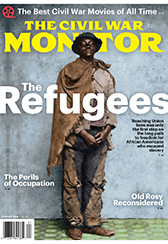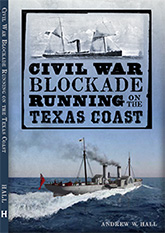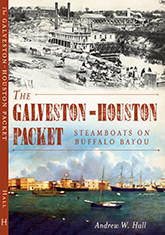A New Season of Who Do You Think You Are?
My teevee viewing for a long time since has been mostly restricted to current events and, as the general election season gets closer, political news. Regular entertainment television is not usually part of my schedule, but I’ve taken a shine to NBC’s Who Do You Think You Are?, a series that takes celebrities and goes digging for stories of their ancestors. (It’s apparently an adaptation of a British series.) Camera crews follow the celebrities around to different parts of the country and overseas to meet with various genealogists, historians and archivists who help them along in their discovery. The show has done several episodes that had a particular Civil War focus, profiling Matthew Broderick and Spike Lee, but there are other stories that are interesting, as well. Kim Cattrall, for example, uncovered some family secrets that were difficult to learn, but that she found important to know.
 The third season of the show began last Friday with Martin Sheen, whose birth name is Ramón Antonio Gerardo Estévez. Sheen is probably known as much for his political activism as for his acting career. The Sheen episode focuses primarily on two uncles who, in the first half of the 20th century, fought in civil wars in their home countries. Sheen’s parents were both immigrants to the United States, his mother from Ireland and his father from Spain. His mother’s elder brother, Michael Phelan, fought in the Irish Civil War in the early 1920s for the Irish Republican Army against the National (or “Provisional”) government, headed by Michael Collins. His Galician father’s brother, Matias Estévez (right, with his family), fought for the Republicans during the Spanish Civil War against the fascists under Franco. Both men found themselves on the losing side of their respective wars, and both ended up imprisoned by their fellow countrymen. There’s an even more remarkable discovery farther back in Sheen’s family tree, but you’ll just have to watch the episode for that.
The third season of the show began last Friday with Martin Sheen, whose birth name is Ramón Antonio Gerardo Estévez. Sheen is probably known as much for his political activism as for his acting career. The Sheen episode focuses primarily on two uncles who, in the first half of the 20th century, fought in civil wars in their home countries. Sheen’s parents were both immigrants to the United States, his mother from Ireland and his father from Spain. His mother’s elder brother, Michael Phelan, fought in the Irish Civil War in the early 1920s for the Irish Republican Army against the National (or “Provisional”) government, headed by Michael Collins. His Galician father’s brother, Matias Estévez (right, with his family), fought for the Republicans during the Spanish Civil War against the fascists under Franco. Both men found themselves on the losing side of their respective wars, and both ended up imprisoned by their fellow countrymen. There’s an even more remarkable discovery farther back in Sheen’s family tree, but you’ll just have to watch the episode for that.
One of the things I thought about while watching Sheen’s episode was that, while he felt an obvious natural affinity to those two men, each of whom had taken up arms for a political cause, and found themselves imprisoned for it (in Matias Estevez’ case, for years), there was no indication that Sheen saw their causes as explicitly his cause. There was no suggestion that Martin Sheen saw himself, personally, as obligated to carry on the fight against the current government of the Republic of Ireland, or go go on a loud, chest-thumping rant about Franco’s fascists. (Possibly because he’s still dead.) It seemed very different than the way some people view the legacy of their ancestors in this country, who fought through a much older conflict, now long past any living memory.
There are some things I don’t much like about Who Do You Think You Are?, all of which are probably due to the necessity of condensing complex stories into a 40- or 45-minute package of entertainment. They compress what would normally be months or years of research by an individual to an improbably short period of time. They use historians and archivists with access to records that, while presumably available to the public, are often obscure and not really accessible to non-specialists. They ignore the dead ends and false leads that are bane of any genealogical researcher. They sometimes take what I think of as a “maybe” finding and present it as an established fact. And inevitably, they tend to zero in on the ancestors who seem to have the most entertaining story, or the most relevance to the modern day celebrity, rather than the more mundane folks who much make up the bulk of that person’s tree.
But what the show does right, I think, makes up for those flaws. It makes the point rather well that prior generations lived lives as complex and difficult — often much more difficult — than our own. It conveys the notion that their stories need to be told, too. It makes doing that historical seem easy (much easier than it often is), and undoubtedly inspires a lot of people to try their hands at it. And that seems to me to be a worthwhile thing.
_____________






I look forward to watching this show as well – I like the part where they disclose previously unknown facts to the celebs using actual or facsimile documents. What I don’t like is that the show doesn’t convey the perseverance and time that it takes to really compile a family tree. I guess if you are a celeb and are invited to be on the show….oh well, it’s been more fun discovering these things on my own anyways.
I’ve had a lot of fun discovering my own family history. I’ve uncovered a few cherished family stories that turned out to be bunk, and a few more that now seem very dubious, but on the whole they’ve held up. In addition, I’ve found all sorts of interesting and remarkable stuff that later generations either never knew, or forgot.
On the show, you do get the sense that some of the subjects really do enjoy the details of digging out the history, and some don’t. Each segment in a new place or archive begins with a brief introduction by the local historian/archivist, explaining what the records are and how they were found. It’s a very brief (too brief, for me) acknowledgement of the methodology involved. I remember in the Spike Lee episode he didn’t even try to mask his exasperation in sitting through that bit (maybe they’d done multiple “takes”), and I almost expected him to blurt out, “whatever, just show me the stuff!”
The case of his ancestor in the Irish Civil War is interesting, and has actually been getting a bit of press in Ireland recently. The parallels- or lack therof- between modern memory of the American Civil War and the Irish Civil War are interesting. Civil War politics in Ireland caused much divisiveness even into the closing years of the 20th century, particularly amongst older generations. However the ‘separateness’ of both sides is much less of an issue in Ireland now then it was. It is interesting to view this against the American Civil War which still appears to elicit stronger feelings then our Civil War could achieve in 2012; perhaps this relates to the geographic element to the divide in the US which was not an aspect of the conflict in Ireland. Ironically the legacy of the Irish Civil War is most strongly felt in our political parties, many of which arose from the 1920s conflict- it is unlikely that strong disagreement would result from people arguing the merits or otherwise of ‘Pro-Treaty’ and ‘Anti-Treaty’ stances today. You do hit on something very interesting here though, with regards to how different nations deal with and memorialize their internal conflicts and what role national identity and the passage of time has to play in that.
Damian, thanks.
I think Sheen’s attitude is a healthy one–respect for his predecessors, but without the pretense that his life is a recapitulation of theirs.
Robert Todd Lincoln Beckwith used to disappoint people with his lack of interest in his family’s legacy, saying, “I’m as far from him as anyone else.” That used to puzzle me, but I’ve become increasingly convinced that it was pretty darn sensible.
–ML
I think my favorite was Steve Buscemi’s story (last season) because it was about ordinary people without money. His ancestor had deserted the Union Army during the Civil War but never went home–just started a new life. He had had some troubles before the war and his second family was so destitute after his death that the children were sent out to be servants. I think they explained more about how they found the info, and that’s why it was more interesting.
I agree with Andy about the show in general, but it’s still fun and different for a show on commercial tv to focus on history. I also like the Henry louis Gates one on pbs.
I missed the Steve Buscemi episode — I’ll look for it online.
Some of BBC shows, which I think are in their seventh season, can be found online with some searching. Some of the Australian shows can be found on http://www.sbs.com.au. Canada and South Africa had their versions, but I’ve only found a few of those online.